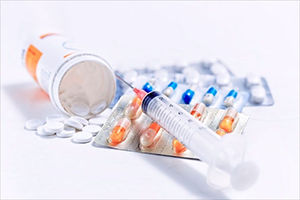What Is Steroids

What is Steroid?
Steroids are hormones produced by the body itself, these are a derivation of a primary molecule. It is a hydrocarbon from which other substances are also derived. Steroids are hormones secreted by body glands and dispersed through the bloodstream.
They are produced by:
The pituitary gland
Parathyroid glands
Thyroid gland
Pancreas
Kidney glands
The thymus
The gonads
Sex glands
And there are divisions in types:
Corticoids
Glcocorticoids
Mineral-corticoids
Androgens:
Androsterone
Testosterone and
Androstendione
Female sex hormones:
Estrogens
Prolactin Follicle-stimulating hormone and
Luteinizing agent, progesterone, oxytocin.
Both androgen and female hormones are synthesized, anabolic steroids or simple steroids used to increase muscle mass.
Other types of steroids are vitamin D, and its derivatives, since they are pre-hormones.
Steroids are synthesized by cholesterol within the human body but are also synthesized artificially in specialized laboratories.

What are steroids for?
Steroids have several functions within the human body. Among those that emphasize the regulation of different functions of the organism as the metabolism of carbohydrates, proteins and lipids. It regulates the balance of electrolytes and homeostasis (metabolism), which regulates the functions that exist within the body and water levels in the cells of the body.
It also regulates the levels of the cardiovascular, renal, skeletal muscle and nervous system.
Regulatory Function:
Some regulate salt levels and secretion of bile, as well as the amount of water in the cells, and in general in the body, generating a state of homeostasis.
Structural function:
Cholesterol is a steroid that is part of the structure of the membranes of cells. From the cholesterol are synthesized the other steroids, in the human body.
Hormonal Function:
Steroid hormones are: corticosteroids, male hormones (androgens), female sex hormones, vitamin D, and others.
What are steroids for?
In medicine they are used in the treatment of conditions that occur when the body produces a low amount of testosterone, such as delayed puberty and some kinds of sexual impotence.
They are also prescribed as treatment for patients with AIDS and degenerative diseases that cause loss of muscle mass.
And in cases such as lack of vitamin D (which is a steroid), in autoimmune diseases such as multiple sclerosis, rheumatoid arthritis, Crohn's disease, lupus, type 1 diabetes, chronic lymphocytic leukemia, certain types of cancer And even dementia.
The most abundant androgen in men is testosterone, primarily produced in the testes. Testosterone, as well as estrogen, is a powerful regulator of metabolism, testosterone is a beneficial hormone, as it increases muscle recovery and strength, as well as the body's metabolism to increase its muscle mass, regulates the amount of fat of the body.
Steroids also cause damage and disorders such as:
Liver tumors
Cancer
Jaundice
Edemas (fluid retention)
Arterial hypertension
Elevation of bad cholesterol
Decreased good cholesterol.
Renal tumors
Acne
Muscle spasms (in bodybuilders)
Muscle hypertrophy
Testicular hypertrophy






















Leave a Comment